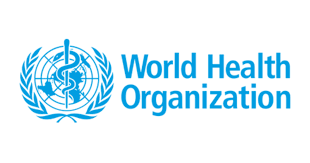The World Health Organisation (WHO) and the Government of Germany have renewed calls for urgent global action to address Non-Communicable Diseases (NCDs), describing them as a “silent pandemic” that continues to claim millions of lives each year.
Speaking at the World Health Summit 2025 in Berlin on Monday, WHO Director-General, Dr. Tedros Ghebreyesus, said NCDs remain the leading cause of death globally, killing 43 million people annually.
“Cancers, heart disease, diabetes, and chronic respiratory diseases account for seven of the world’s top ten causes of death,” Ghebreyesus said. “Every year, NCDs kill 18 million people under the age of 70 — people cut down in their prime from diseases that could be prevented or treated.”
He revealed that more than one billion people globally face mental health conditions, with suicide ranking as the third leading cause of death among young people.
Ghebreyesus urged countries to take immediate action rather than waiting for the formal adoption of the upcoming UN Political Declaration on NCDs, expected later in October.
“The challenge is huge but the solutions are available and affordable. Together, we can prevent disease, protect health, and save lives from NCDs now,” he said.
According to him, the new UN declaration sets ambitious global targets for the next five years — including reducing tobacco use by 150 million people, ensuring 150 million more people have controlled hypertension, and expanding mental health care access for another 150 million people.
Germany’s Federal Minister of Health, Ms. Nina Warken, reaffirmed her country’s leadership in global health and commitment to tackling NCDs through prevention, reform, and innovation.
Warken described NCDs as a “silent pandemic” that demanded immediate and coordinated action.
“If NCDs were a virus, the world would be in lockdown,” she warned, noting that they account for 90 per cent of deaths in Germany and 75 per cent of deaths globally.
She highlighted Germany’s multi-sectoral efforts to promote physical activity, improve mental health literacy, and integrate preventive health strategies across all policy areas.
“Prevention is not only a national priority, it is a global imperative,” she said. “We know, we have the tools. What we need now is the determination and partnerships to deliver results.”
Despite advances in healthcare, cardiovascular diseases, diabetes, cancer, chronic respiratory diseases, and mental health disorders remain the world’s leading causes of premature death and disability. People in low- and middle-income countries face the greatest risk due to limited access to care and preventive services.
Experts warn that unless decisive action is taken, the world may fail to achieve Sustainable Development Goal 3.4, which seeks to reduce premature mortality from NCDs by one-third by 2030.
The Fourth UN High-Level Meeting on Prevention and Control of NCDs and Promotion of Mental Health and Well-being, held in September, marked a renewed global commitment to intensify efforts in tackling NCDs. The declaration provides a framework for strengthening health systems, improving equitable access to care, and fostering collaboration across sectors to build a healthier and more resilient global population.


